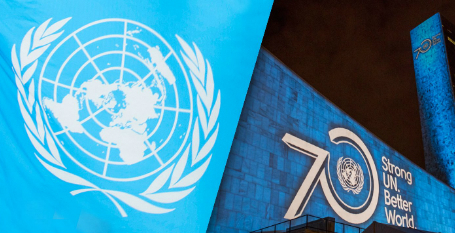Egypt has spear-headed a communication with the president of the UN on behalf of the Organization of Islamic Cooperation (OIC) to object to the participation of the 11 groups. The letter sent to President Mogens Lykketoft did not give a reason.
The OIC group’s members include Saudi Arabia, Iran, Indonesia, Sudan and Uganda. U.N. officials said the European Union, Canada, Australia and the US all wrote to Lykketoft to protest the objections.
Samantha Power, U.S. ambassador to the United Nations, said the groups appeared to have been blocked for involvement in lesbian, gay, bisexual and transgender advocacy.
"We are deeply concerned that at every negotiation on a new General Assembly gathering, the matter of NGO (non-governmental organization) participation is questioned and scrutinized," Power wrote according to Reuters.
"The movement to block the participation of NGOs on spurious or hidden grounds is becoming epidemic and severely damages the credibility of the U.N.," she said.
"If you're serious about getting to zero (AIDS cases), then it's vital to include all communities," Britain's deputy U.N. ambassador Peter Wilson said according to ABC. "It's wrong to block access to the U.N. for transgender organizations and gay organizations that have every right to participate in this important discussion."
Canada's Ambassador and Deputy Permanent Representative Michael Grant said his country also sent a letter expressing concern that members could remove civil society groups from a conference without providing any justification.
Secretary-General Ban Ki-moon has long been out front on issues involving LGBT people, and has implemented changes including recognition of all same-sex marriages of its staff, allowing them to receive equal benefits.
However, many of the 193 U.N. member states have not been supportive. Russia, with the support of 43 states including Saudi Arabia, China, Iran, India, Egypt, Pakistan, and Syria, unsuccessfully tried to overturn the move last year.

